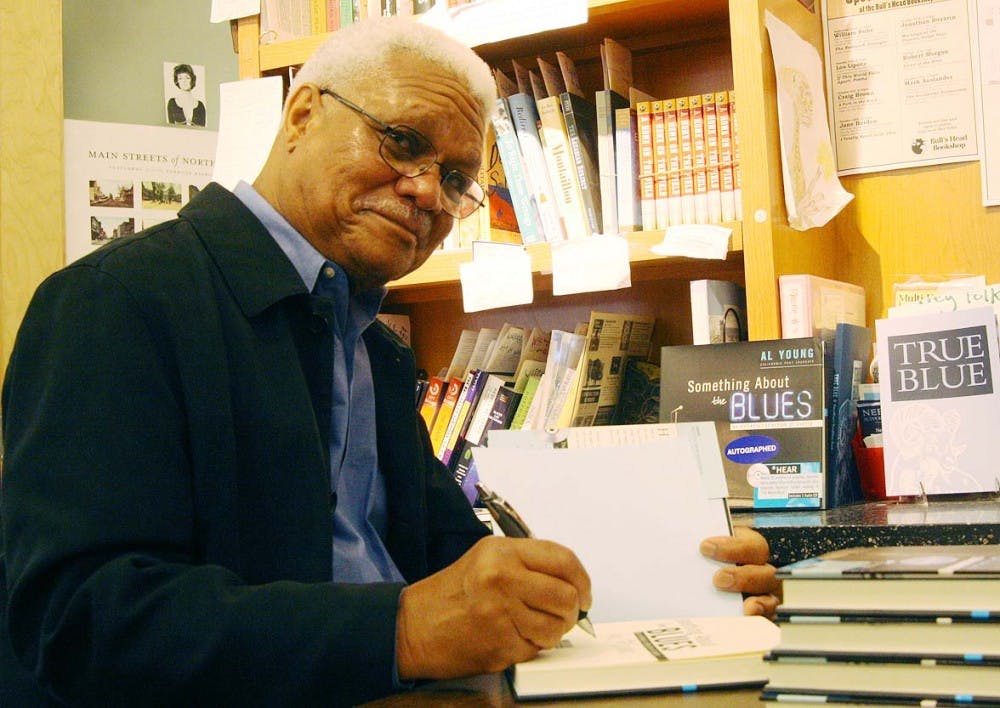Al Young is a writer.
Delving into poetry and fiction, memoirs and anthologies, even screenplays for the likes of Sidney Poitier and Bill Cosby, Young has been named the 2011 Thomas Wolfe Prize recipient.
The former California Poet Laureate taught poetry in spring 2003 at Davidson College in Davidson, NC, as the McGee Professor in Writing. That fall, Young stayed in the state as the first Coffey Visiting Professor of Creative Writing at Appalachian State University in Boone, NC. There, he taught a poetry workshop.
The Thomas Wolfe Prize is sponsored by the UNC English and comparative literature department and the Morgan Writer-in-Residence Program.
Young will give a free public lecture and reading in Historic Playmakers Theatre tonight at 7:30 p.m. Before the event, staff writer John Sherman chatted with Young about his inspiration, his writing process and the quality of the English language._
Daily Tar Heel: What will you discuss in your lecture?
Al Young: Thomas Wolfe, his work and how his work has come to influence my work in a seemingly roundabout way. I am strongly influenced by (many works) that were influenced directly by Thomas Wolfe. I am fascinated by how many parallels there are between our works, so I will spend a lot of time focusing on that tomorrow night.
DTH: What is important in writing?
AY: It is important for writers to be drunk with language. Thomas Wolfe was certainly immersed in language — he never missed a nuance, he captured everything with his language. You have to be very skillful with language in order to describe reality.
DTH: What do you think the value of writing and language is?
AY: It is just an innate human faculty. Biologists and linguists have convinced me that we are supposed to talk. It is natural. It is kind of a social glue. And so it disgraces me to see language perverted, with a little mistake, you have affected people’s consciousness. It is powerful.
DTH: Do you feel a responsibility to protect a correct use of language?
AY: Of course, I must set an example. People can use language to lie and deceive. So, to avoid that, to be truthful, I try to be as simple and clear as I can be.
DTH: What is your writing process like?
AY: It is an art, it is a process and it is a duty. Once you’re equipped with basic writing skills, you have a duty to be as clear, as simple, as truthful as you can be. Whatever genre I’m working in, I am only as good as my words. So I want people to understand what I am saying. When you write, you’re in collaboration with your audience. I want people to read (my work) and to understand we are part of one another.




